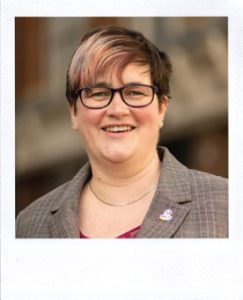 EQUITY, DIVERSITY & INCLUSION SPECIALIST’S VIEW
EQUITY, DIVERSITY & INCLUSION SPECIALIST’S VIEW
SHARON SLINGER,
FOUNDER & DIRECTOR OF CONSTRUCTING RAINBOWS
Let’s be honest, the facilities management industry hasn’t always been front and centre when it comes to conversations about progressive, inclusive workplaces. It’s time for facilities management to face up to LGBTQ+ inclusion gaps and with the latest research showing almost half the workforce in that demographic feeling unsupported, that’s a wake-up call that FM leaders should be paying close attention to.
These aren’t fringe concerns. We’re talking about the basics – policies that actually protect LGBTQ+ workers, fair and transparent recruitment processes, and the ability to work without having to endure so-called “banter” that crosses the line into discrimination. If people are still afraid to be themselves at work, or worse, feel unsafe raising concerns, we have a serious cultural problem.
Facilities management leaders can’t afford to ignore this. Let’s begin with policies – not just vague nods to “equality” but clear, enforceable protections for sexual orientation and gender identity. If your anti-discrimination policy doesn’t name it, it probably doesn’t cover it. And if no one ever sees or hears about the policy after they’re hired, it’s as good as useless.
And that “just joking” culture? That’s got to go. It’s 2025, we’re not in the school playground. If someone still thinks it’s fine to mock someone’s identity and call it humour, they need a reality check – and consequences.
It’s not all doom and gloom, though. There are some genuinely encouraging signs. More FM companies are launching internal LGBTQ+ networks, introducing allyship programmes, and spotlighting LGBTQ+ voices during Pride. That’s a good start – but inclusion can’t just be a June thing. It needs to be wired into how decisions are made, who gets hired, who gets promoted, and how teams are led all year round.
And here’s the thing: creating a more inclusive workplace isn’t just about doing the right thing morally (although that should be enough). It’s also about performance. People do their best work when they feel safe, valued, and seen.
Facilities management has come a long way – but if we want to attract and retain top talent, especially from younger generations, we need to stop treating inclusion as an add-on. It must be embedded across the organisation.
Inclusion isn’t a box to tick – it’s a culture to build. The time to lead that change is now.




